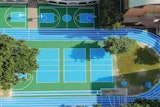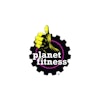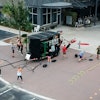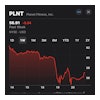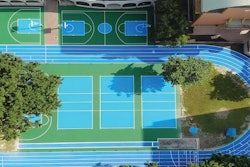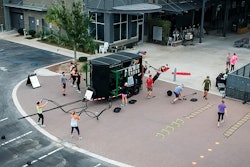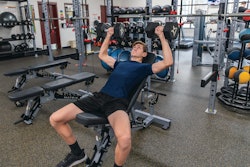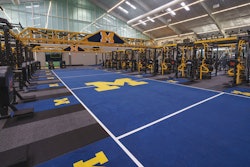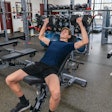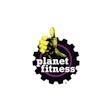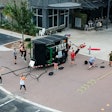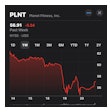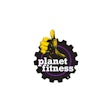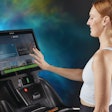Does exercise strengthen the immune system? It helps to have an understanding of the immune system and immunity.
"Do you have any advice on strengthening the immune system?" Your client appears quite worried. "It's for my son, the one who's a college freshman. He's been sick five times since September. His coach is ready to kill him, he's missed so many practices and games. His academic work is suffering, too. I am wondering, does all the exercise he is doing strengthen his immune system? Or is it his sports training that is making him sick? And do you think his diet could be one of the problems?"
The immune system and immunity
To answer your client's question, it helps to have an understanding of the immune system and immunity. Your body provides resistance to pathogens such as bacteria and viruses in many ways. Scientists classify the components of immune function into two basic categories that make this enormously complex system easier to understand: nonspecific and specific resistance.
Nonspecific resistance (also called innate immunity) provides immediate protection from a wide array of pathogens without targeting a specific microbe. The skin and mucous membranes provide mechanical and chemical barriers that keep invaders out of your body. The acidity of your stomach kills many of the harmful microbes found in food. Inflammation and fever increase your nonspecific resistance. Special immune cells such as natural killer cells and phagocytes kill a variety of harmful invaders.
A good example of nonspecific resistance can be seen when you are suffering from a cold. Cold symptoms, including runny nose, cough and fever, are not produced directly by the cold virus, but by the body's nonspecific defenses as they fight the virus.
Your body develops specific resistance in response to a specific pathogen. Specific resistance (also called acquired immunity) activates specific immune cells (B cells and T cells) that target a particular invader. After an encounter with certain pathogens, such as the chicken pox or measles virus, either through suffering from the illness or from exposure to a vaccine, your immune system retains a memory of the way that pathogen looks. When that invader next appears, the immune system recognizes the pathogen and mounts a defense.
Physical activity, nutrition and immunity
As usual, whether the effects of exercise are good or bad have to do with the question of balance. In general, regular physical activity strengthens both nonspecific and specific resistance. However, too much exercise, especially prolonged exercise such as running a marathon or suddenly increasing training volume, can decrease both nonspecific and specific resistance. Studies have observed less activity in several types of immune cells, including natural killer cells, phagocytes, and the B and T cells, after prolonged training. This may explain why many athletes find that they get sick after a big competition.
Elevated stress hormones and nutrition deficiencies appear to explain some of the changes in immune function observed following excessive exercise. High volumes of exercise can put the body into an energy deficit that the body classifies as stress. Levels of stress hormones rise, and some of these suppress immune health to spare energy for the immediate emergency (the athletic event).
Nutrition deficiencies common in endurance athletes can impair immune function. Immune cells are made from proteins, so it is not surprising that a low protein intake is associated with lower immune function. Athletes who train heavily need higher intakes of protein (1.2 to 1.6 g/kg body weight) than their less-active friends. Adequate carbohydrate protects the immune system by reducing the body's stress response during high volumes of exercise. One study found that athletes who consumed a carbohydrate beverage (30 to 60g. carbohydrate) during prolonged, high-intensity exercise had a much lower stress response and less reduction in immune function than athletes who consumed a placebo beverage.2
Many vitamins and minerals support a healthy immune system. Athletes whose diets are not always well-balanced can benefit from a supplement that supplies the RDA for most vitamins and minerals.
REFERENCES
- Fleshner, M. Physical activity and stress resistance: Sympathetic nervous system adaptations prevent stress-induced immunosuppression. Exercise and Sport Sciences Reviews 3 (3): 120-126, 2005.
- Gleeson, M., D.C. Nieman and B.K. Pedersen. Exercise, nutrition and immune function. Journal of Sports Sciences 22(1): 115-126, 2004.
- Tortora, G.J., and S.R. Grabowski. Introduction to the Human Body. John Wiley & Sons: New York, N.Y., 2004.









